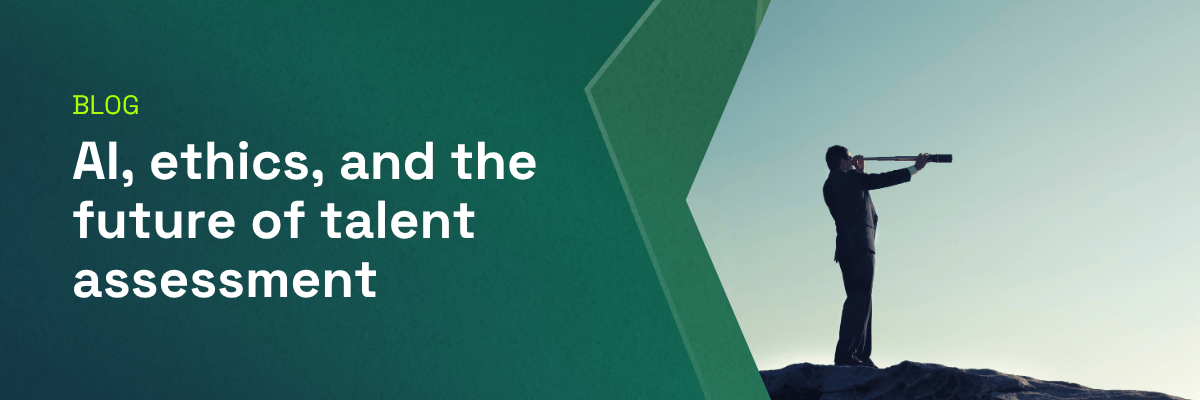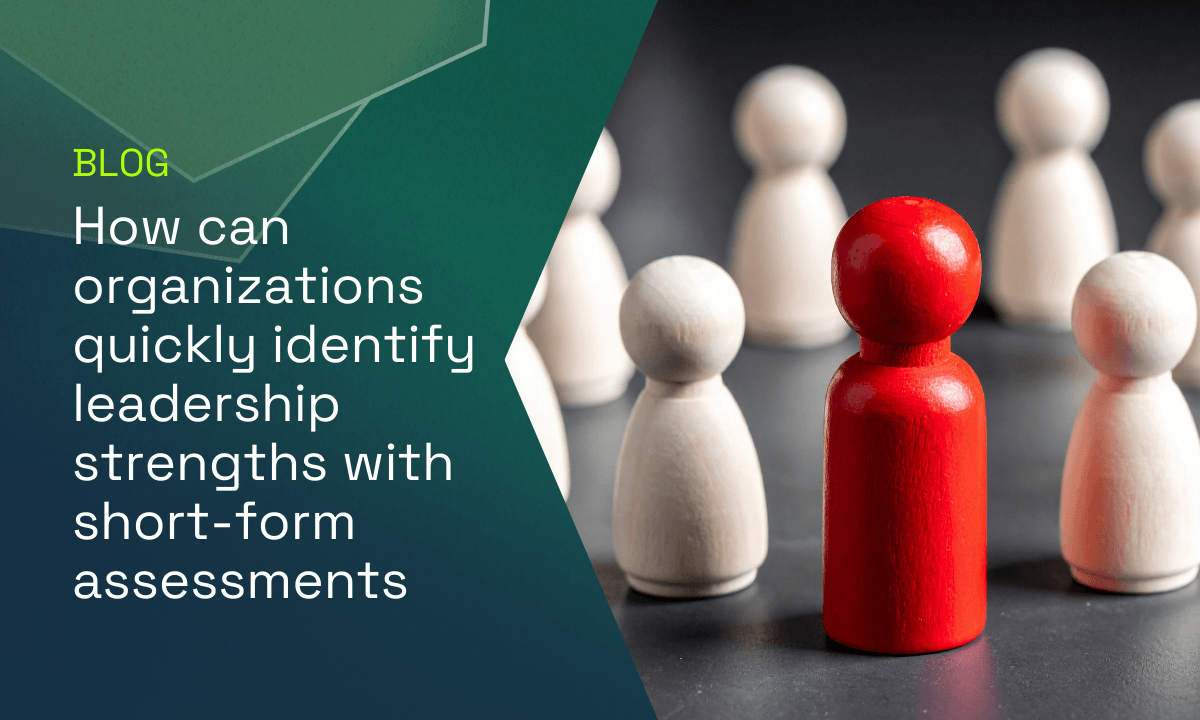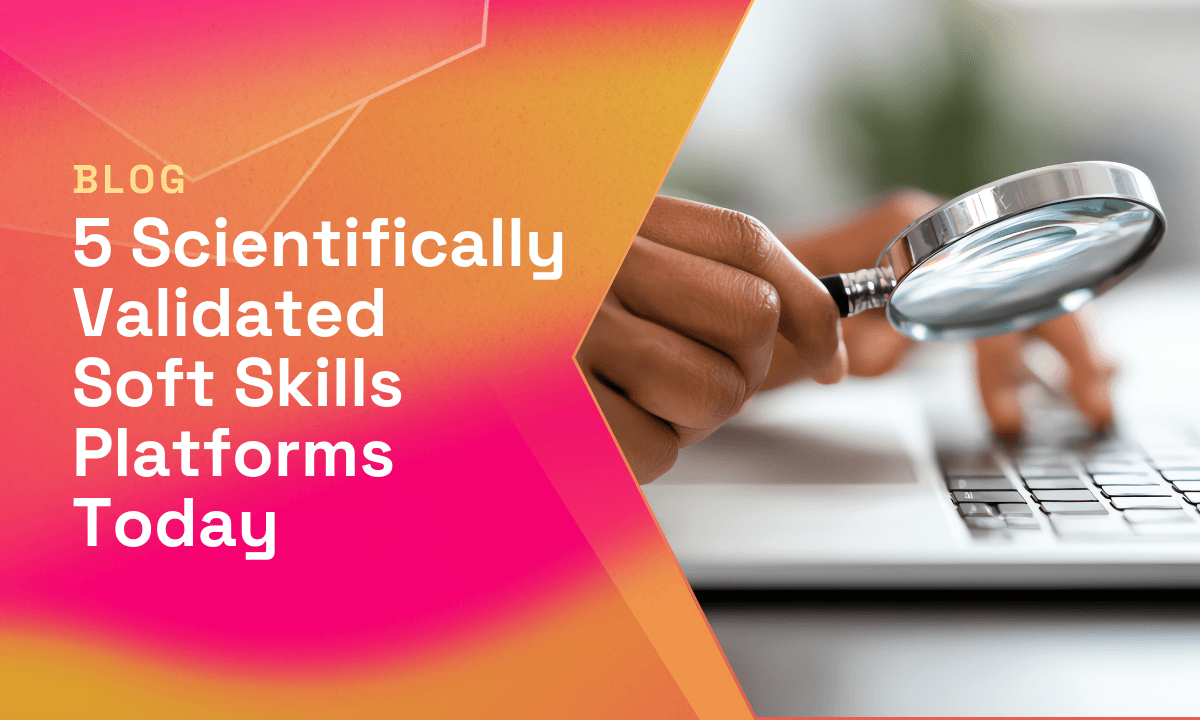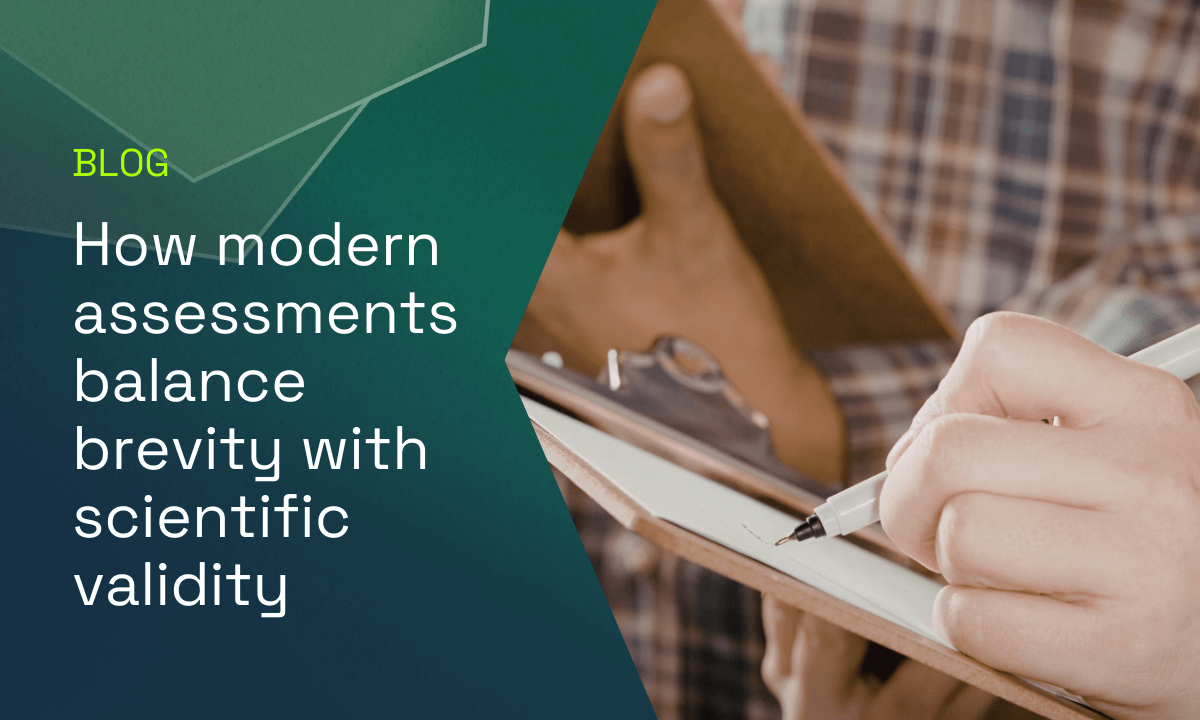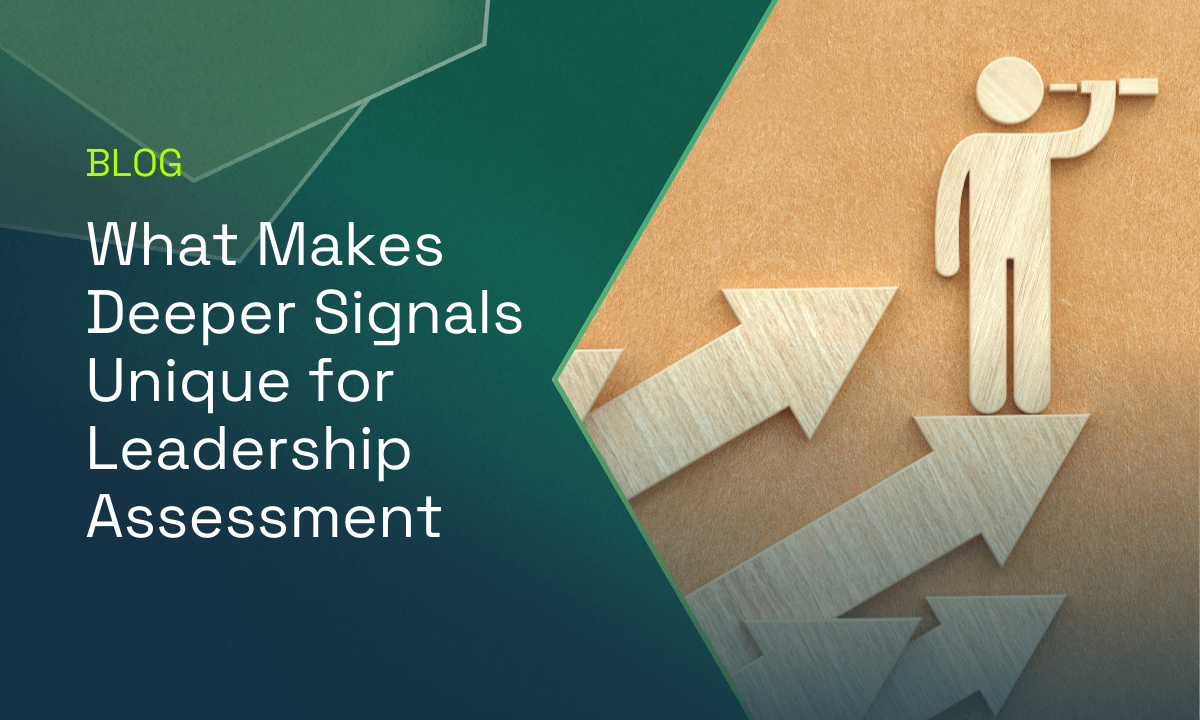AI, ethics, and the future of talent assessment
Artificial intelligence is transforming nearly every corner of the workplace, and talent assessment is no exception. What was once guided by intuition and interviews is now supported by algorithms that can interpret behavior, predict potential, and generate personalized insights about people at work.
At Deeper Signals, we see this transformation as a powerful opportunity. When applied responsibly, AI can help organizations make smarter, fairer, and more consistent people decisions. But as innovation accelerates, it also raises complex ethical questions about fairness, transparency, and accountability.
This intersection between technology and human potential is where ethics must lead innovation.
The promise of AI in talent assessment
AI has enormous potential to make hiring and development more predictive, inclusive, and data-driven.
Traditional recruitment relies heavily on résumés and subjective interviews, which often fail to reveal how someone will actually perform. Research consistently shows that structured, evidence-based assessments of soft skills and reasoning ability are far better predictors of performance and engagement than experience alone.
Used well, AI democratizes opportunity. It helps organizations see candidates for who they are and who they can become, not just what is written on their résumé.
Where ethics enters the equation
The more influence AI gains in talent decisions, the more important ethical safeguards become. When algorithms are used to shape hiring, promotion, or development, questions of bias, privacy, and human oversight must be addressed from the start.
1. Fairness
AI models learn from historical data. If that data reflects past bias, the model can unintentionally perpetuate it. Research highlights these risks in recruitment systems.
Deeper Signals and other responsible assessment providers work to mitigate this risk through bias testing, representative datasets, and ongoing model audits. Ethical AI begins with diverse, high-quality data and continuous evaluation.
2. Transparency
Transparency means everyone understands how insights are generated. Candidates should know what information is being analyzed and how it informs decisions.
At Deeper Signals, explainability is built into the design of our AI assessment assistant Sola. Technology should clarify decision-making, not obscure it.
3. Privacy and consent
Assessment data reveals deeply personal aspects of who we are: our motivations, values, and reasoning styles. This information must be handled with care.
Deeper Signals follows strict privacy standards and complies with regulations like GDPR and SOC 2. Every user owns their data, and their insights are never shared or used for any purpose beyond their growth and assessment experience.
4. Human oversight
AI should inform, not decide. Human judgment remains essential to interpreting results in context.
In Deeper Signals’ approach, AI provides guidance and explanation, but it is the manager, coach, or HR professional who makes the final call. Technology enhances decision-making without replacing empathy or expertise.
The research and regulation landscape
Governments, psychologists, and technology ethicists are beginning to set clearer expectations for how AI should be used in employment contexts.
- The EU AI Act and emerging U.S. frameworks classify hiring-related AI as high-risk, demanding rigorous documentation and transparency.
- Studies from the World Economic Forum and Harvard Business Review show that trust in AI depends as much on interpretability and fairness as on accuracy.
- Behavioral science continues to demonstrate that well-designed psychometrics, when paired with AI, can improve both selection accuracy and diversity outcomes.
Deeper Signals builds on this foundation by combining validated psychological assessments with responsible AI design. Every insight produced by the platform is rooted in evidence and guided by ethical practice.
The path forward
AI in talent assessment is neither inherently good nor bad. It is powerful, and that power must be directed with care.
Ethical systems are:
- Transparent: Users can see and understand how insights are generated.
- Fair: Models are tested, monitored, and adjusted to minimize bias.
- Secure: Data is protected and handled with explicit consent.
- Human-centered: Technology supports judgment, not automation of people decisions.
These principles form the foundation of Deeper Signals’ mission to make soft skills intelligence accessible, actionable, and ethical.
A responsible vision for AI in people decisions
At Deeper Signals, we believe AI should help people understand themselves and others, not define or limit them. Our assessments turn psychological science into everyday insight, empowering organizations to make data-informed choices while honoring individual uniqueness.
By embedding fairness, transparency, and human oversight into every part of the process, Deeper Signals demonstrates that technology can enhance empathy, not erode it. We envision a future where AI helps organizations see beyond the résumé, measure what truly matters, and make every people decision with clarity and confidence.
In an era where algorithms increasingly influence opportunity, responsibility must guide every innovation. The real promise of AI in talent assessment lies not only in what it can predict, but in how thoughtfully it is used.



